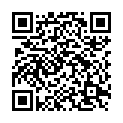|
|
|
| Module code: DFBTO503 |
|
|
2U (2 hours per week) |
|
2 |
| Semester: 5 |
| Mandatory course: yes |
Language of instruction:
English |
Assessment:
Written exam (50%) 90 min. and tests over the course of the semester (50%)
[updated 30.04.2025]
|
DFBTO503 (P620-0549) International Tourism Management, Bachelor, ASPO 01.10.2018
, semester 5, mandatory course
DFITM-504 (P620-0539) International Tourism Management, Bachelor, ASPO 01.10.2020
, semester 5, mandatory course
|
30 class hours (= 22.5 clock hours) over a 15-week period.
The total student study time is 60 hours (equivalent to 2 ECTS credits).
There are therefore 37.5 hours available for class preparation and follow-up work and exam preparation.
|
Recommended prerequisites (modules):
None.
|
Recommended as prerequisite for:
|
Module coordinator:
Prof. Dr. Thomas Tinnefeld |
Lecturer:
Prof. Dr. Thomas Tinnefeld
[updated 13.03.2017]
|
Learning outcomes:
After successfully completing this module, students will: be able to perform at level B1+ of the Common European Framework of Reference, largely due to an English learning environment:
- have acquired basic knowledge on teaching the foreign language in a largely subject-related approach,
- be able to understand relevant intermediate-level, tourism-oriented texts - including those in the Anglo-American press - in detail,
- be able to understand intermediate, technically relevant, orally presented texts pertaining to different topics,
- be able to use relevant tourism management terminology in English in a largely adequate manner,
and reflect on moderately difficult newspaper and magazine articles from the Anglo-American press, also interculturally, and draw their conclusions independently,
- be able to reflect on and independently draw conclusions from moderately difficult, technically relevant, orally presented texts - also interculturally,
- have developed and improved their discussion skills through the targeted support offered in the course,
- be able to represent their own opinions and points of view and to adequately take part in discussions using appropriate language,
- be able to use English in oral and written forms of expression in an authentic manner,
- be able to recognize and reflect on specific cultural differences and peculiarities of tourism between English-speaking countries,
- have developed a high degree of intercultural competence in dealing with Anglo-American issues and situations,
[updated 04.09.2023]
|
Module content:
- Development of an advanced tourism-related vocabulary
- Highly advanced functional grammar with a focus on its use
in various types of texts in tourism management
- Systematic reading of relevant text from the field of tourism management
- (Inter)culturally relevant topics in the subject area, with a focus on the countries
where the target language is spoken
- Authentic newspaper and magazine articles with technical and/or
(inter)cultural focuses
- Regional content, including topics from daily politics
for the purpose of raising students´ awareness for the ways people think in
the target countries
- Further development of writing skills from a technical language perspective
[updated 30.04.2025]
|
Teaching methods/Media:
- Group discussions
- Partner work
- Group work phases where students tackle specific tasks
- Interactive, multimedia language lab
- Short presentations by the students
[updated 25.11.2020]
|
Recommended or required reading:
- Teaching materials: texts and exercises compiled by the lecturer
- PowerPoint presentations by the lecturer or equivalent visualization forms
- Newspaper and magazine articles with scientific and/or (inter)cultural orientation
- Internet resources
- Didactic video and audio material
[updated 04.09.2023]
|

